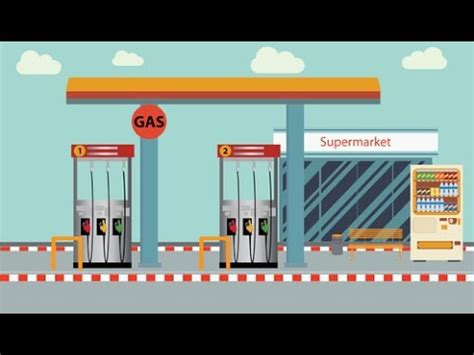Strategic Funding: How to Finance Gas Station Expansion
Expanding your gas station requires significant capital investment. Whether you're adding convenience store space, installing new fuel pumps, upgrading technology, or expanding into EV charging, securing the right funding is crucial for success. This article explores various strategic funding options for gas station expansion, helping you navigate the process and choose the best approach for your specific circumstances.
What are the common costs associated with gas station expansion?
Before diving into funding options, understanding the potential costs is paramount. Expansion projects can encompass various expenses, including:
- Construction and Renovation: This is often the largest expense, covering building materials, labor, permits, and architect fees. The scope of the renovation will drastically impact the final cost. A simple pump upgrade will cost considerably less than a complete convenience store overhaul.
- Equipment Purchases: New fuel pumps, tanks, point-of-sale (POS) systems, refrigeration units, and other equipment represent a substantial investment. Consider the lifespan and maintenance costs of each piece of equipment when budgeting.
- Inventory: Stocking your expanded convenience store requires a significant upfront investment in merchandise. This includes food, beverages, tobacco products (where permitted), automotive supplies, and other retail items.
- Technology Upgrades: Implementing new POS systems, loyalty programs, fuel management software, and security systems can enhance efficiency and profitability, but require upfront investment.
- Licensing and Permits: Securing all necessary permits and licenses for construction, fuel storage, and retail operations can involve considerable time and expenses.
- Marketing and Advertising: Promoting your expanded gas station to attract new customers will require a marketing budget.
How much funding will I need for my gas station expansion?
Determining the total funding needed requires a comprehensive business plan. This plan should detail all projected expenses, including contingency funds for unforeseen costs. It's crucial to be realistic and thorough in your estimations to avoid running short of funds during the expansion process. Consider consulting with a financial advisor or business consultant to create a robust and accurate financial projection.
What are the different funding options for gas station expansion?
Several funding avenues can support your gas station expansion. The best choice depends on your creditworthiness, existing cash flow, and risk tolerance.
1. Small Business Loans:
- SBA Loans: The Small Business Administration (SBA) offers government-backed loans with favorable terms, often requiring less collateral than traditional bank loans. These loans are an excellent option for established businesses with good credit.
- Traditional Bank Loans: Commercial banks provide loans secured by assets like your existing gas station property or equipment. Interest rates vary based on creditworthiness and loan terms. A strong business plan is essential for securing approval.
- Credit Unions: Credit unions often offer competitive loan rates and more personalized service than larger banks. They may be a particularly attractive option for smaller gas station expansions.
2. Equipment Financing:
This specifically funds the purchase of new equipment, such as fuel pumps or refrigeration units. Payments are structured over the equipment's useful life, making it a manageable expense.
3. Lines of Credit:
A line of credit provides access to funds as needed, offering flexibility during the expansion process. However, interest rates can be higher than traditional loans, and only a portion of the available credit might be used.
4. Investor Funding:
Seeking investment from angel investors or venture capitalists can provide substantial capital. However, this often involves relinquishing equity in your business and accepting their input in management decisions.
5. Private Financing:
This involves borrowing from family, friends, or other private sources. While convenient, it carries personal relationships risks and can create financial complexities.
What factors should I consider when choosing a funding source?
Selecting the right funding source depends on various factors:
- Credit Score: A high credit score will unlock better loan terms and interest rates.
- Cash Flow: Strong cash flow demonstrates your ability to repay the loan.
- Collateral: Assets you can offer as collateral will influence loan approval and interest rates.
- Loan Terms: Carefully examine interest rates, repayment schedules, and any associated fees.
- Equity Dilution: If considering investor funding, understand the implications of relinquishing equity in your business.
How can I improve my chances of securing funding?
- Develop a comprehensive business plan: This detailed plan should outline your expansion goals, market analysis, financial projections, and management team.
- Maintain strong financial records: Accurate and up-to-date financial statements demonstrate your business's health and stability.
- Build a strong credit history: A good credit score significantly improves your chances of loan approval.
- Secure professional advice: Consulting with financial advisors and business consultants can provide valuable guidance throughout the funding process.
By carefully considering these funding options and preparing a robust business plan, you can strategically finance your gas station expansion and achieve your growth objectives. Remember to thoroughly research each option and choose the funding source best aligned with your financial situation and long-term goals.

